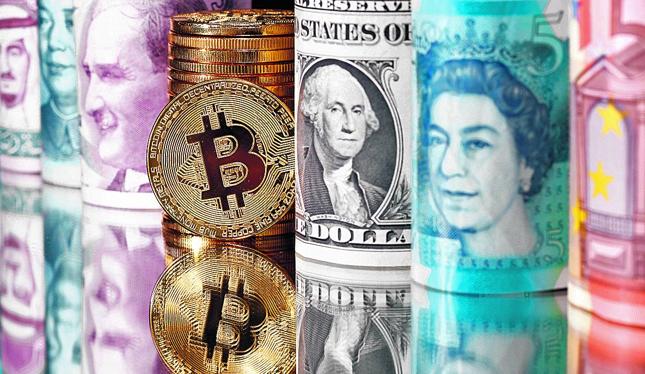Religious cult, speculative bubble or treasury asset?
This year has been an eventful one for Bitcoin (BTC) and some cryptocurrencies
Jeremy Blatch
Malaga
Friday, 19 April 2024, 17:30
This year has been an eventful one for Bitcoin (BTC) and some cryptocurrencies. The long-awaited approval by the US Securities and Exchange Commission (SEC) ... has drawn many into purchasing Bitcoin through newly created Exchange Traded Funds (ETFs). It is now an asset class. However, don't be fooled. Wall Street does what Wall Street does best: sell to the public whatever they think they want.
The market may be front-running the BTC 'halving' event in April, which will reduce the production capacity of miners by 50%. This event occurs every four years. The BTC price has moved since its launch in 2009 in four-year cycles. The increase of the price of BTC is directly correlated with the amount of liquidity in the financial system.
However, what is the momentum that is driving the price of Bitcoin based on? A greater fool theory that someone else will buy it from you at a higher price than you paid? Or an asset class with longevity? BTC, unlike other commodities, does not have an intrinsic value as it has no commercial use as a commodity. Supporters argue that expediential growth through the network effect, Moore's Law, makes intrinsic value irrelevant.
Much is made of the growth of BTC millionaires, and some evangelistically see BTC as a solution for the ills of mankind both financial and spiritual. Detractors will recall the South Sea Bubble in 1720, the Tulip mania in Holland in 1663 and the Ponzi scheme of 1920, all of which spelt financial ruin for millions, such is the hubris and greed of the human condition.
Does the investment case for Bitcoin really stand robust scrutiny? Most of us would agree that Blockchain technology together with AI and robotics are here to stay and are already changing our lifestyles and the way we transact business. But these innovations have tangible value. The growth of BTC adoption as with any speculation is purely a function of the price. However, it will be a 'game changer' if financial digital services (De FI) still to be fully developed, are rolled out through the BTC network.
BTC has proved not to be correlated with the price of other assets, providing diversification in an investment portfolio. The main central banks own gold bullion as a hedge against the depreciation of purchasing power of Fiat currency. The $ has lost 98% against gold since 1971. Central banks own gold bullion, not BTC.
It is fashionable to compare BTC with gold bullion. When BTC was launched marketeers depicted it and still do as a type of golden coin. BTC does have some of the qualities of gold. BTC is too volatile to be a stable currency so is not a method of account nor medium of exchange. It has far outshone all other assets on a risk adjusted basis and has therefore proved to be a store of value albeit over a relatively short period of time.
Unlike gold it is uniquely scarce, only 21m BTC may be mined, and its digital properties give it a clear advantage over gold in transferring value. However, will it be around in its present form in 100 years let alone 4,000?
Jeremy Blatch
-
The author is a member of the Society of Trustees and Estate Practitioners and an investment counsellor. The comments and observations by the author are a reflection of his opinion and do not constitute an offer to buy and hold securities, nor does he receive any remuneration of any kind from names referred to.
¿Tienes una suscripción? Inicia sesión


Comentar es una ventaja exclusiva para registrados
¿Ya eres registrado?
Inicia sesiónNecesitas ser suscriptor para poder votar.